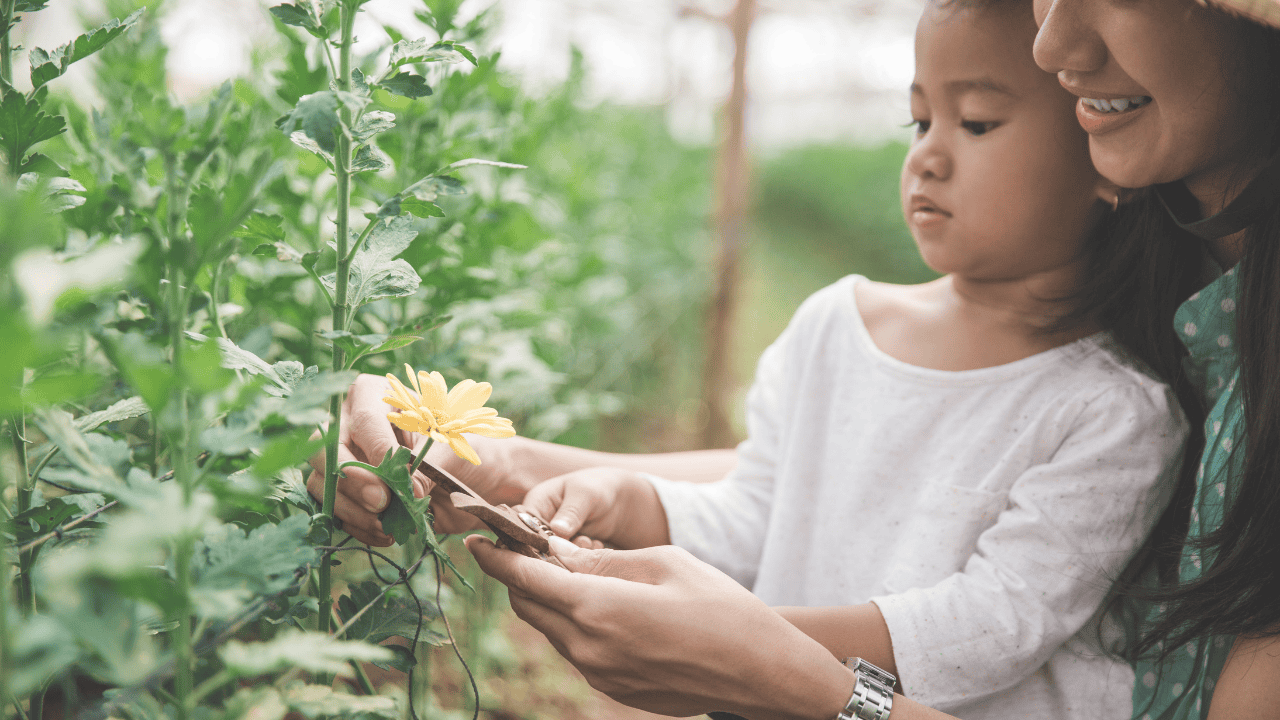 | | | | About the Author Nancy Joerger is a Product Development Specialist. Prior to joining Great Kids®, she worked as the Assistant Program Manager of the Early Head Start Program in Madison County. She lives in Hamilton, NY, with her husband and two daughters. She enjoys spending time with her family, boating, and being creative in her free time. |
“To cultivate the garden is to ensure its future growth.” – Unknown
As I gaze out my window, I can’t help but feel excited about the signs of spring all around! The trees are starting to bud, the birds have returned to our neighborhood, and I see cheerful little flowers peeking out from the winter ground. It makes me think about getting ready to cultivate the soil for my vegetable and flower gardens. It’s such a refreshing feeling of renewal and rejuvenation!
Taking time to cultivate a beautiful summer garden takes assessment, planning, and implementation. First, I consider which seeds I’d like to grow and look at my supplies from last year. Next, I plan how I’d like my garden to look and determine which seeds to plant initially. Then, I take action and follow my planning guide, so all the seeds are planted at the right time with the best conditions. I continually water, fertilize, and pull the weeds around my plants throughout the growing season. Taking care of my garden is hard work. But the benefits of the beautiful flowers and yummy vegetables are well worth my time and effort.
The Meaning of Cultivate
Did you know that cultivating the professional development of home visitors can be much like planting a garden? The word cultivate not only means to get ready or prepare but also to acquire, gain, or grow a skill.2 Researchers who study home visiting practices support professionals in taking a lifelong learning approach to growing their knowledge and skills.3,4 They recommend that programs identify their professional development needs, develop a plan to increase home visitor’s knowledge and skills, and support staff to implement new practices into their service delivery.1,4
Growing Home Visitors Through Professional Development
When I was a supervisor in a home visiting program, I often thought back to my experiences in my garden as I started planning with the team for professional development. We met each year to create individualized professional development plans, assessing strengths and areas for growth. One common area of interest was using the GGK® Curriculum to fidelity, recognizing that evidence-based home visiting strategies lead to stronger outcomes for parents and children.4 Based on these insights, the home visitor and I worked together to plan targeted professional development opportunities to support their continued learning.
Reflection was a key part of our process. We took time to consider what they learned and how to integrate new strategies and insights into home visits. Our commitment was clear: to deliver high-quality services that empower parents to nurture children who feel safe, secure, loved, valued, curious, and capable.
Fast-forward a few years, and I am now a Product Development Specialist at Great Kids®. I have the privilege of designing the very curricula and professional development content that I used to plan for.
Customized In-Person Training for GGK® Users
It’s with great excitement that our new customized in-person training, Cultivate, is ready to launch! This training supports programs that use the GGK® Prenatal to 36 Months curricula to continue their learning journey after their initial Tier I certification. It was designed to build on the various levels of knowledge and experience in the room and provides opportunities to learn through shared discussions and skill-building practices. My favorite part is that programs will get to customize their training experience specific to their needs by selecting from 20 different session topics.
As you look ahead at opportunities for renewal and rejuvenation for yourself, your program, and the families you serve, consider learning more about Cultivate and all of the other professional development opportunities that Great Kids® has to offer.
You’ll be supporting home visitors in growing their skills and, in return, strengthening family resilience and parent-child attachment relationships.
References:
- Early Childhood National Center on Early Childhood Development, Teaching, and Learning. (n. d). Implementation guide: Using the ELOF to inform professional development. U.S. Department of Health and Human Services, Administration for Children and Families, Office of Head Start. https://headstart.gov/sites/default/files/pdf/no-search/elof-05-inform-professional-development.pdf
- Meriam-Webster. (n.d.) Cultivate. In Merriam-Webester.com dictionary. https://www.merriam-webster.com/dictionary/cultivate
- Roggman, L., Boyce, L., and Innocenti, M. S. (2008, August 8). Developmental Parenting: A guide for early childhood practitioners. Brookes Publishing.
- Peters, R., Benatar, S., and Sandstrom, H. (2021). Professional development supports for home visitors and supervisors: Strengthening the home visiting workforce. OPRE Report #2021-01, Washington, DC: Office of Planning, Research, and Evaluation, Administration for Children and Families, U.S. Department of Health and Human Services. https://acf.gov/sites/default/files/documents/opre/Professional%20Development%20Short%20Report_Sept2021REVISION.pdf


